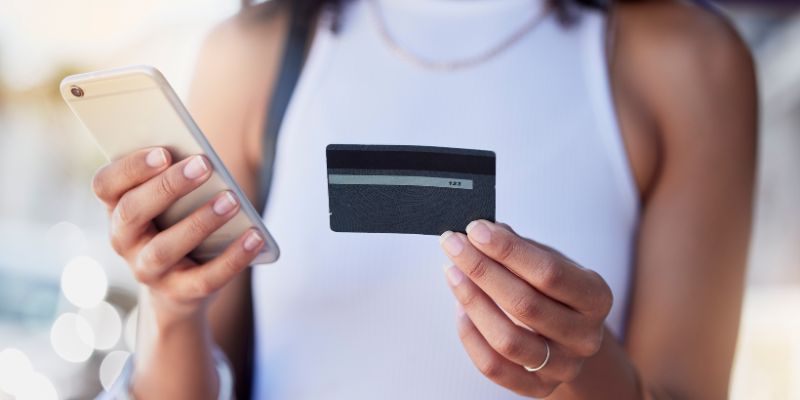A Guide To Buying A House With Low Income
Dec 18, 2023 By Susan Kelly
Are you looking to buy a house but don't have the high income most lenders require? You're not alone. Millions of people face this challenge yearly, with many feeling that homeownership must be within reach.
But keep hope. There are still ways to own a home with limited financial resources, and We will provide tips and advice on how to do just that. Go through each section carefully, and you'll be well on your way to buying a house with low income despite all odds.
Can I Buy a House With a Low Income?

The answer is yes; you can buy a house with a low income. It may require more hard work and creative thinking, but it's possible. You'll need to know where to look for assistance programs to help you make your dream of owning a home come true.
One way to increase your chances of buying a home with limited financial resources is to find grants and other assistance programs available for people in certain situations, such as veterans or first-time homebuyers.
You may even qualify for special loans through government organizations like the Federal Housing Administration (FHA). Researching these options could be well worth the effort if they give you access to funds to help make homeownership possible.
Buying a house with low income: Mortgage programs and assistance

Research all the options available when looking for ways to buy a house with a low income. Government-backed loans are one of the most common types of mortgage programs that can help you become a homeowner despite having limited finances:
HomeReady mortgage
The HomeReady Mortgage is a Fannie Mae loan program that allows for lower down payments and debt-to-income levels than traditional loans. The main benefit of this loan is that it allows you to use income from people outside your household, such as family members or roommates, to help you qualify for the mortgage.
FHA loans
If you have a low credit score or limited savings, an FHA loan may be the right choice. These government-backed loans require lower down payments (as little as 3.5%) and are easier to qualify for than conventional mortgages. Plus, they come with more flexible repayment terms and rates than many other types of home loans.
The FHA also offers more protection against foreclosure than other loan programs. They provide borrowers with a mechanism to get out of their mortgage early and may even offer additional assistance if they struggle to make payments. Plus, lenders participating in the FHA program must adhere to specific guidelines, so you can feel confident that they will work hard to keep your payments manageable.
Home Possible and HomeOne mortgages
Home Possible and HomeOne mortgages are great options for those with low income, limited savings, or bad credit. Both programs, offered by Freddie Mac, provide lower down payment requirements than traditional mortgage loans and require less cash upfront at closing. They have more lenient borrower qualifications than other loan types.
With HPossible Home mortgages, you can get a loan of up to 97% of the purchase price without requiring private mortgage insurance.
Meanwhile, HomeOne mortgages offer even more flexibility regarding down payments and qualification standards, allowing borrowers to buy a home with as little as 3% down. Plus, these programs give borrowers access to competitive interest rates that make homeownership more affordable in the long run.
FHA loan
The Federal Housing Administration (FHA) loan is a government-backed home loan that helps low-income earners purchase homes with lower down payments than they could through traditional lenders.
The FHA requires borrowers to have a minimum credit score of 500 but allows borrowers with higher scores to receive better interest rates and terms. Additionally, the FHA allows for more lenient debt-to-income ratios than most other loan types, making qualifying easier even if you don't have a high income.
VA loan
The VA loan is a mortgage loan offered to veterans, active military members, and their families. The Department of Veterans Affairs backs it, and it can be used to purchase or build an existing home. The VA loan stands out from other loans because it does not require a down payment and offers competitive interest rates with no mortgage insurance required.
Additionally, borrowers can finance up to 100% of the home's value. This makes it ideal for low-income buyers who may not have enough money saved for a down payment but still want to buy a house. The VA also protects against foreclosure if you cannot pay your loan. With all these benefits, the VA loan offers an excellent option for veterans and military members looking to purchase a home.
USDA loan
The USDA loan is a mortgage offered to low-income households. The United States Department of Agriculture backs it and provides an affordable way for eligible buyers to purchase homes in rural or suburban areas. The USDA does not require a down payment and allows borrowers to finance up to 100% of the home's value, making it ideal for those with limited financial resources.
Closing costs are typically lower with this type of loan than other types of mortgages. Borrowers must also meet certain income requirements to qualify, but those who can take advantage of very competitive interest rates and terms that make homeownership easier on their budget. With all these benefits, the USDA loan is worth considering if you want to buy a home with a low income.
Good Neighbor Next Door program
The Good Neighbor Next Door program is a HUD-sponsored initiative that allows teachers, police officers, firefighters, and EMTs to purchase homes at a reduced cost. This program allows participants to purchase single-family homes in revitalization areas at 50% off the listing price. To be eligible for the program, buyers must agree to live in the home as their primary residence for three years.
The Good Neighbor Next Door program is an excellent opportunity for those looking to become homeowners with limited financial resources. It allows buyers to purchase a home well below market value and provides additional financial incentives such as no down payment or closing costs required.
FAQS
How much deposit do I need for a house?
The money you need to save for a house deposit varies depending on your loan type. Generally, if you use a conventional loan, you must put down at least 5-20% of the purchase price as a down payment. However, using an FHA or VA loan, you can get a loan with as little as 3.5% or 0% down, respectively.
What is the cheapest way to buy a house?
The cheapest way to buy a house is through government-backed programs such as FHA, VA, and USDA loans. These programs typically require lower down payments than conventional mortgage loans and have more flexible qualification standards. They offer competitive interest rates and often do not require private mortgage insurance (PMI).
What are the benefits of being a first-time home buyer?
As a first-time home buyer, you may be eligible for special programs and incentives such as tax credits, grants, and lower down payments. Lenders often offer more lenient qualification standards to first-time buyers with lower credit scores or limited savings. There are also loan programs such as FHA and VA loans specifically designed for those looking to purchase their first home.
Conclusion
Buying a low-income house can seem impossible, but it's still possible. If you do your research and plan, there is no reason you shouldn't be able to find the perfect home. You need to underavailable options available and be mindful of potential problems.
Consider getting help from organizations for real estate or housing assistance when figuring out how to navigate the process so that you don't get conned into a bad deal. With this information, you can be confident as you embark on your journey toward buying a house with a low income.

Find Out When to Take a Credit Limit Increase: A Complete Guide
Nov 12, 2023
The likelihood of a limit increase increases if you have a good payment history and have never used more than your available credit.

Features of Sterling Overnight Interbank Average Rate
Nov 02, 2023
The average rate of interest paid by banks overnight for unsecured transactions conducted in the British sterling market is denoted by the Sterling Overnight Index Average, which is abbreviated as SONIA

What Exactly Is an HSA Custodian?
Jan 15, 2024
Any bank or other financial institution approved by the IRS to store HSA funds can serve as an HSA custodian. Health savings accounts are managed by financial institutions known as "administrators." Contributions to a Health Savings Account are held in a special bank account by an appointed administrator.

Top benefits and drawbacks of Fractional real estate investing
Oct 28, 2023
The number of shares issued in a securitization of a property may be determined by the interest shown by potential investors. It can be 10, 20, or even more. If a house is being purchased solely for investment purposes, it could be divided into as many "shares" an investor wants to buy. The best solution for you will depend on your specific circumstances, so experiment until you find it

5 Proven Strategies to Improve Your Credit Score Fast
May 19, 2024
Learn effective strategies to boost your credit score quickly with our comprehensive guide. Take control of your financial future today!

What is a Purchase Money Mortgage
Nov 08, 2023
Learn how to purchase your dream home without emptying your savings. In this guide, we discuss what a purchase money mortgage is and the potential benefits it can offer you.

Understanding Trial Balance: Definition, Function, and Importance
May 19, 2024
Explore trial balance - its definition, operation, and purpose. Acquire the knowledge needed to manage your financial records effectively.

The Ripple Effect: How Your Bad Credit Can Shape Your Kids' Tomorrow
Dec 25, 2023
Want to explore the profound effects of bad credit on your children's future? Learn how credit struggles can impact kids and discover ways to mitigate the credit impact.

How To Get Rid Of Your Car: 5 Easy Steps
Dec 01, 2023
Compared to a regular sale, trading in your car will save you a lot of time and energy. The most obvious perk of a trade-in is that it may be applied to purchasing a new car's down payment. This is helpful in many situations, but it might be convenient when negotiating a loan for a new automobile.

Ten Strategies Investors Can Leverage to Thrive During Inflation
Jan 26, 2024
Discover how to protect and grow your investments during inflation. This article provides 10 key strategies, from diversifying assets to consulting a financial advisor.

A Beginner's Step by Step Guide on Trading Future in 2024
May 20, 2024
Future financial trading involves buying and selling financial or commodity contracts. Risk management, market tracking, and hedging are must-learns.

Automatic Student Loan Forbearance
Dec 31, 2023
Forbearance stops the student loan payment for a certain period, typically requested by a stressed borrower seeking temporary student loan relief. Loan service providers can put students in automatic forbearance in certain situations.